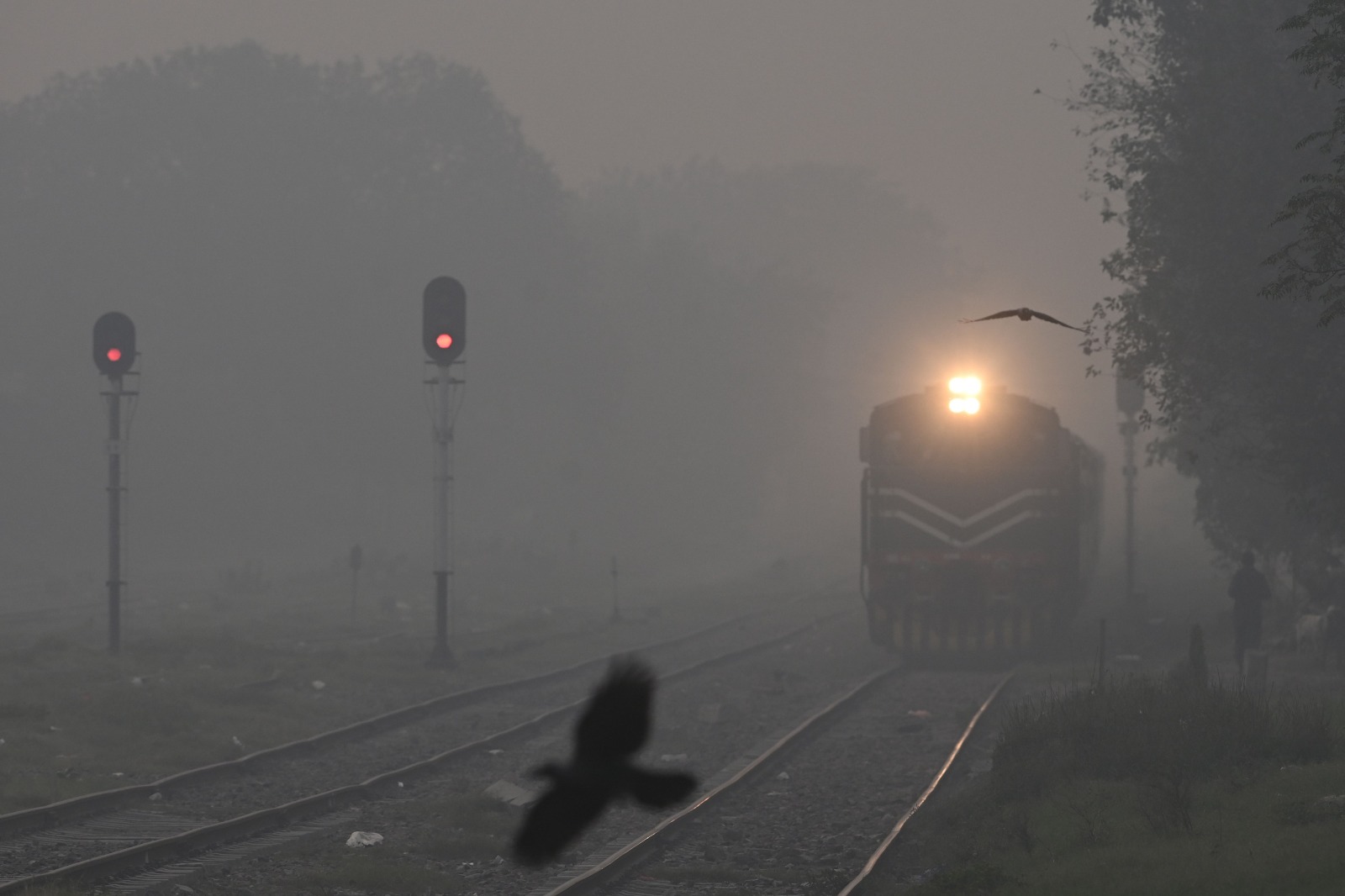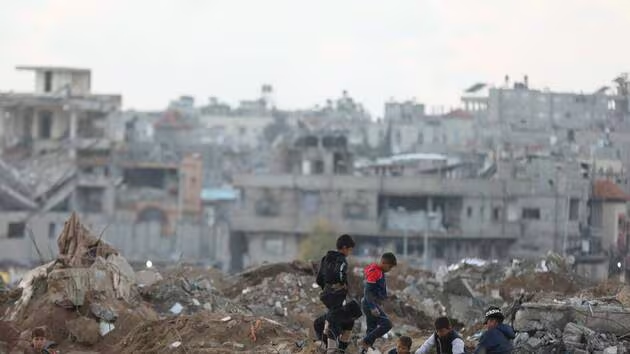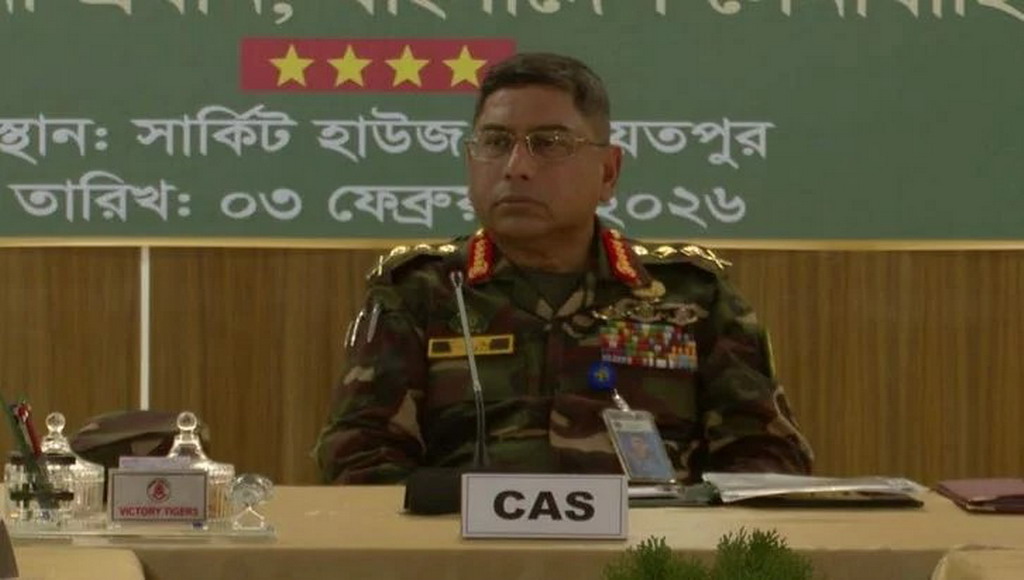Pakistan battles severe smog as Indian crop burning intensifies air crisis

A train arrives at a station amid dense smog in Lahore on October 29, 2025. (AFP)
LAHORE: Lahore continues to rank as the world’s most polluted city for a fifth straight day, as cross-border smoke from widespread crop burning in India mixes with local emissions to drive smog to dangerous levels across Pakistan’s Punjab.
According to the Swiss air monitoring platform IQAir, the Air Quality Index (AQI) of Pakistan’s second largest city surged to 567 on Wednesday morning, placing it in the “hazardous” category and prompting health advisories and enforcement actions.
Earlier this week, Lahore’s AQI had peaked at 424, while PM2.5 levels reached 287 µg/m³, far exceeding safe limits. Karachi also recorded severe pollution on October 28, ranking third globally with an AQI of 174, while New Delhi placed second with 276.
In response, the Punjab government has revised school timings, with classes now beginning at 8:45 am, to limit children’s exposure during peak smog hours.
Environmental experts say stagnant winter air, vehicle emissions, industrial output, and agricultural fires are collectively worsening conditions. However, smoke from crop residue burning across the border in Ludhiana, Jalandhar, and Haryana has notably intensified smog, elevating PM2.5 and PM10 concentrations across Pakistan’s largest province.
Health professionals warn that prolonged exposure to such hazardous air can lead to stroke, heart disease, chronic respiratory illness, and lung cancer. Residents have been advised to wear masks and avoid outdoor activities, particularly during early morning and late evening.
The Punjab Disaster Management Authority (PDMA) has declared a high alert across Lahore, Gujranwala, Sheikhupura, Kasur, Faisalabad, Multan, and Rahim Yar Khan.
“The intensity of smog is expected to increase from November to mid-December,” said PDMA Director Hameedullah Malik in a statement to Pakistan TV Digital. He said a ban is in place on burning crop residues, solid waste, tires, plastic, and rubber, adding that legal action will be taken against violators.
Tech-driven crackdown
The Punjab Safe Cities Authority (PSCA) has deployed drone surveillance to identify active pollution sources. Over the past 48 hours, authorities detected more than 756 violations, according to PSCA.
Meanwhile, the Department of Environmental Protection and Climate Change is promoting sustainable alternatives to burning. At a seminar in Kabirwala, farmers were trained to manage rice stubble without setting fields ablaze. Officials explained how agricultural waste can be converted into biomass energy, turning residue into a resource rather than smoke.
“Smog is a serious environmental and public health issue, requiring collective and coordinated efforts,” said Project Coordinator Dr. Younus Zahid.
Citizens have been urged to report smog-causing activities to the helpline 15.
Senior Minister Marriyum Aurangzeb said nine departments are carrying out joint anti-smog operations, with environmental squads in the field and drone monitoring of brick kilns. She said AQI forecasting has been introduced in Punjab for early intervention, in addition to high-powered anti-smog guns deployed by the Environment Protection Agency.
She advised vulnerable groups to stay indoors at night. “Already a ban is in place on all types of outdoor activities at schools,” she said.
Local innovation for pollution control
Engineers at the University of Engineering and Technology (UET) have developed an anti-smog gun with a 40-meter spray range, designed to suppress dust at high-pollution sites.
UET Vice Chancellor Professor Munir, speaking to Pakistan TV Digital, said the system would be deployed at construction sites, stone-crushing plants, and mining operations, all major contributors to airborne particulate pollution.
Latest News
Gaza civil defense says death toll from Israeli strikes rose to 17
3 HOURS AGO

Putin tells Xi Moscow-Beijing alliance 'stabilizing' for world
3 HOURS AGO
.jpg)
Iran formally allows women to ride motorcycles
3 HOURS AGO
.jpg)
Ukraine delegation arrives in UAE for Russia talks
4 HOURS AGO

Bangladesh army chief calls for neutrality ahead of 2026 general election
4 HOURS AGO

